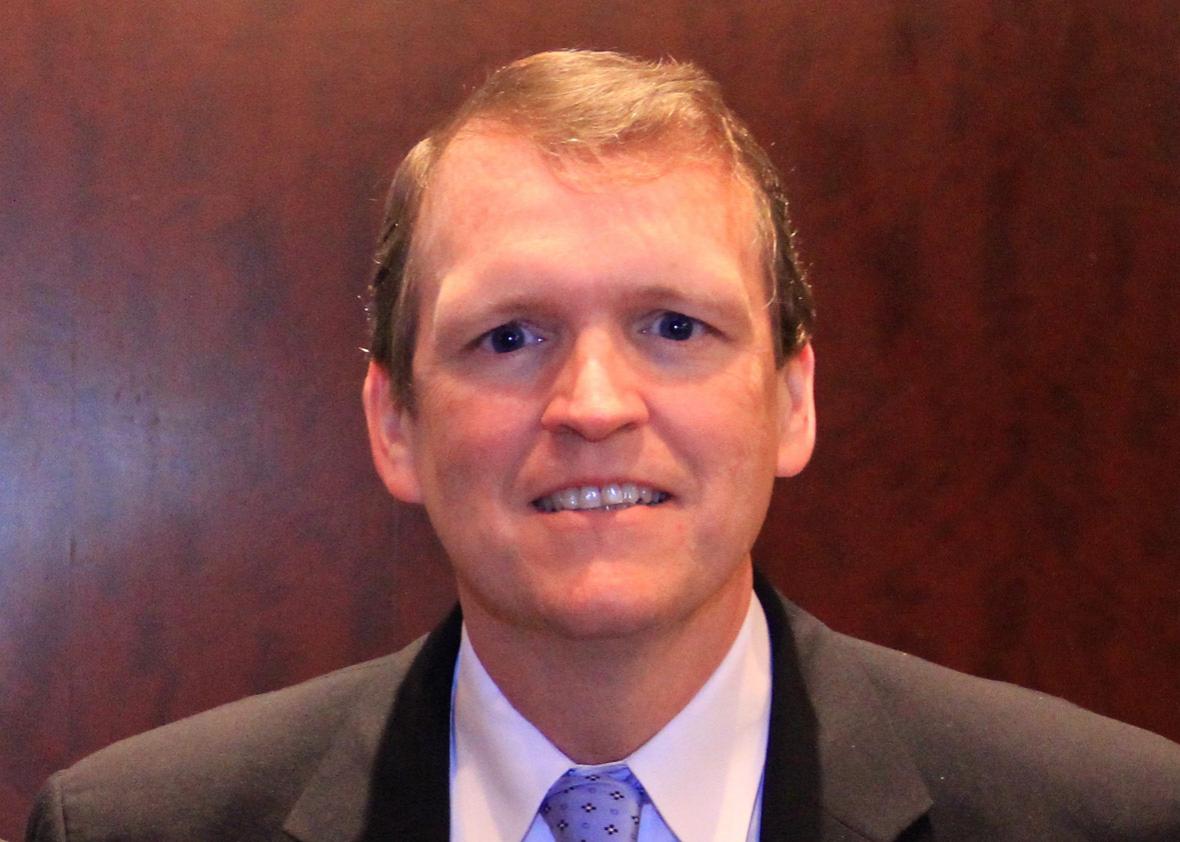Donald Trump’s presidency will last, at most, for eight years. His administration can do a great deal of damage in that time. But the judges he appoints to the federal judiciary will serve for the rest of their lives. If history is a guide, some of Trump’s hundreds of judges will still be serving in 2067. That gives them ample time to wreak all sorts of havoc on civil rights. Less than a year into this administration, it is clear that a key agenda item for Trump’s judges is the rollback and eventual reversal of marriage equality.
The latest confirmation of this goal arrived on Wednesday, when CNN revealed that a new Trump district court nominee, Jeff Mateer, recently condemned LGBTQ people in dehumanizing terms. In 2015, Mateer called transgender schoolchildren part of “satan’s plan” and described same-sex marriage as “disgusting” “debauchery,” comparing it to “people marrying their pets.” He also endorsed conversion therapy, a discredited practice that attempts to turn gay people straight, often using gruesome psychosexual torture.
Trump nominated Mateer to the U.S. District Court for the Eastern District of Texas earlier this month. On the same day, the president also nominated Matthew J. Kacsmaryk to the United States District Court for the Northern District of Texas. Mateer and Kacsmaryk are colleagues at First Liberty Institute, a conservative legal advocacy group that opposes LGBTQ rights, including nondiscrimination measures that protect gay and trans people. Although Kacsmaryk’s public statements are not flamboyantly bigoted, his choice of employment suggests that he shares Mateer’s beliefs about LGBTQ rights. A third nominee, Stephen S. Schwartz, has devoted much of his career to defending anti-trans measures in court. Trump wants to place him on the U.S. Court of Federal Claims.
Will the Senate confirm Mateer, Kacsmaryk, and Schwartz? I don’t see why not. In July, Senate Republicans pushed through John K. Bush, an anti-gay blogger and conspiracy theorist who used the word faggot in a speech. Republicans on the Senate Judiciary Committee have also approved Damien M. Schiff, a lawyer who declared in 2009 that a California law prohibiting bullying falsely taught “that the homosexual lifestyle is a good, and that homosexual families are the moral equivalent of traditional heterosexual families.” If these nominees are not too extreme for Senate Republicans, it isn’t clear who would be.
Trump has farmed out the job of judicial selection to the Federalist Society, as well as to the Heritage Foundation, a conservative, anti-LGBTQ Washington think tank. Heritage’s most extreme picks, such as Mateer, make headlines. But in truth, virtually all of Trump’s judicial nominees subscribe to an ideology that is hostile to LGBTQ rights. Just consider Neil Gorsuch—who, the New York Times assured us, had many gay friends and was not “so easy to pigeonhole” on gay rights. Actually, he was: Despite having “openly gay clerks” and attending a church in “liberal Boulder” that “welcomes gay members,” Gorsuch ruled against gay parents’ rights within months on the bench. His cramped interpretation of equality easily trumped his putative personal affection for gay people.
Heritage’s intentions are not mysterious: The organization would ultimately like Trump’s judges to help overturn Obergefell v. Hodges, which brought marriage equality to every state. Of course, Heritage also wants to reverse Roe v. Wade and a plethora of other progressive decisions—but it recognizes that Obergefell is more vulnerable in the lower courts. That’s because full marriage equality still requires some judicial implementation: Many state laws pertaining to legal parentage and spousal benefits are gendered, and in red states, it is typically the courts that must bring them in line with Obergefell.
Some lower courts have done an admirable job of reinterpreting state statutes to recognize the constitutional rights of same-sex couples. Others, however, have intentionally misconstrued Obergefell in an effort to perpetuate the legal inferiority of gay people. Gorsuch has more or less encouraged the lower courts to play this game, and Trump’s judges will likely accept his invite. And so, when Texas refuses to recognize a child’s legal parent because she is a lesbian or withholds spousal benefits from gay state employees, these judges can permit the state’s discrimination by warping Obergefell.
This trick only works if Justice Anthony Kennedy, or one of the judges from the court’s liberal wing, dies or retires under Trump, allowing the president to create an anti-gay majority on the Supreme Court. The new majority could then uphold each form of discrimination, chipping away at Obergefell until it’s ready to reverse it outright. But even if Kennedy hangs on, judges like Mateer can temporarily make life miserable for gay plaintiffs, denying them their rights until a higher court has the opportunity step in. The best case scenario here is that LGBTQ people will continue to face hostility in the courts through the 2060s. Less likely, but still chillingly plausible, is that Trump’s judges will either weaken marriage equality bit by bit or overturn it entirely well before then.
